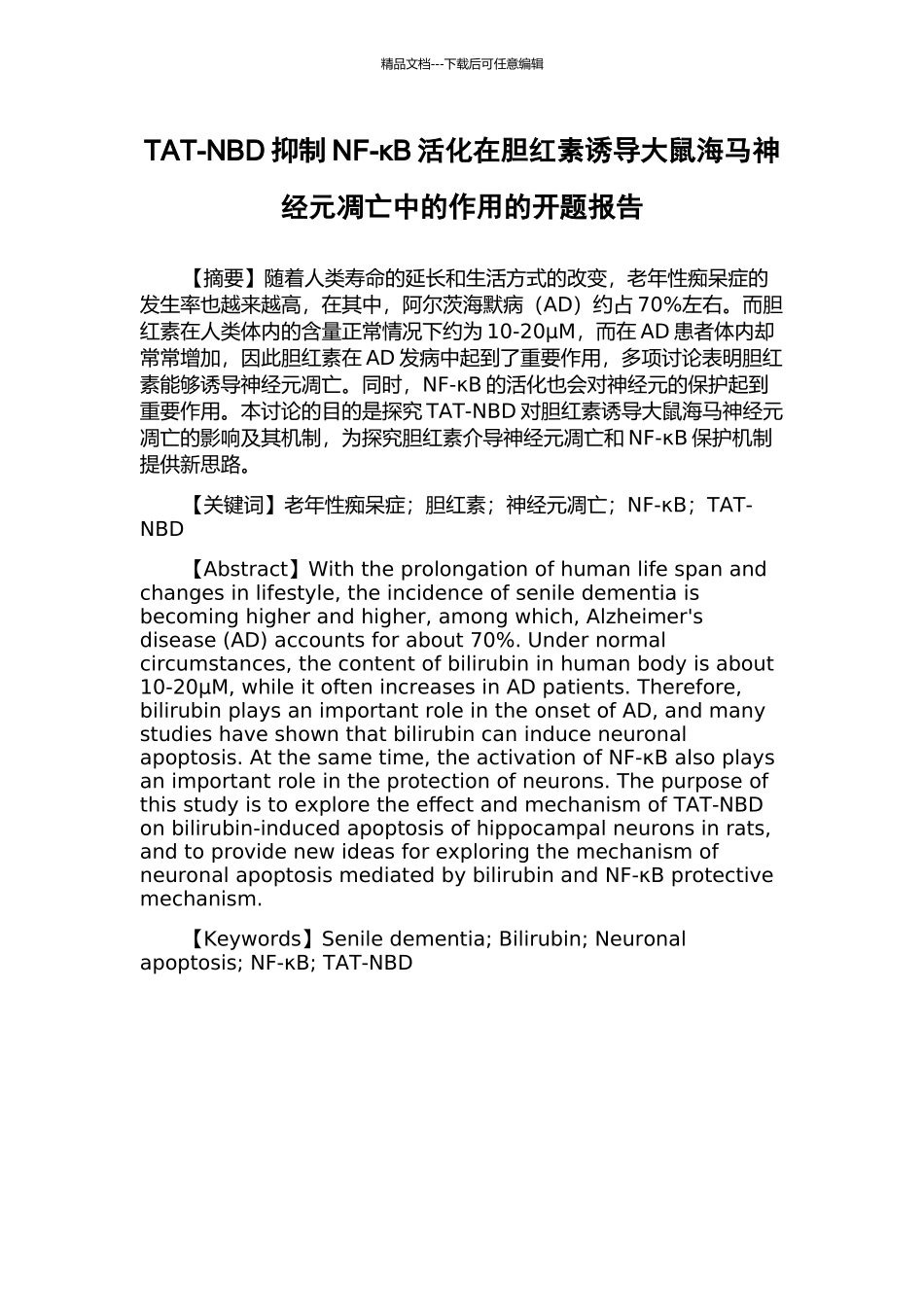精品文档---下载后可任意编辑TAT-NBD 抑制 NF-κB 活化在胆红素诱导大鼠海马神经元凋亡中的作用的开题报告【摘要】随着人类寿命的延长和生活方式的改变,老年性痴呆症的发生率也越来越高,在其中,阿尔茨海默病(AD)约占 70%左右。而胆红素在人类体内的含量正常情况下约为 10-20μM,而在 AD 患者体内却常常增加,因此胆红素在 AD 发病中起到了重要作用,多项讨论表明胆红素能够诱导神经元凋亡。同时,NF-κB 的活化也会对神经元的保护起到重要作用。本讨论的目的是探究 TAT-NBD 对胆红素诱导大鼠海马神经元凋亡的影响及其机制,为探究胆红素介导神经元凋亡和 NF-κB 保护机制提供新思路。【关键词】老年性痴呆症;胆红素;神经元凋亡;NF-κB;TAT-NBD【Abstract】With the prolongation of human life span and changes in lifestyle, the incidence of senile dementia is becoming higher and higher, among which, Alzheimer's disease (AD) accounts for about 70%. Under normal circumstances, the content of bilirubin in human body is about 10-20μM, while it often increases in AD patients. Therefore, bilirubin plays an important role in the onset of AD, and many studies have shown that bilirubin can induce neuronal apoptosis. At the same time, the activation of NF-κB also plays an important role in the protection of neurons. The purpose of this study is to explore the effect and mechanism of TAT-NBD on bilirubin-induced apoptosis of hippocampal neurons in rats, and to provide new ideas for exploring the mechanism of neuronal apoptosis mediated by bilirubin and NF-κB protective mechanism.【Keywords】Senile dementia; Bilirubin; Neuronal apoptosis; NF-κB; TAT-NBD
